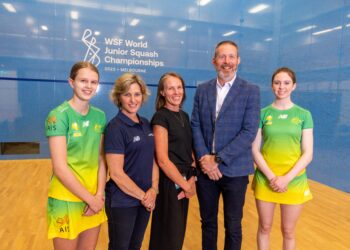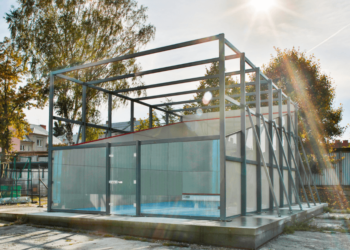Having moulded son Daryl into a top-ten player, Paul Selby is eagerly watching his 10-year-old grandson play conditioned games during a session at the Off The Wall Squash Academy on a Tuesday evening.
But although Noah Selby is a highly ranked player in his national age group, Selby Sr is more preoccupied with reviving the sport he loves among the masses than producing the next UK champion.
Like many others, Selby (pictured above with middle Grandson, Harrison) fears that squash faces an existential threat if the decline in the number of courts and participants isn’t quickly reversed.
And crucially, he also believes he possesses the recipe to revive the sport.
Getting schooled in squash by Paul Selby
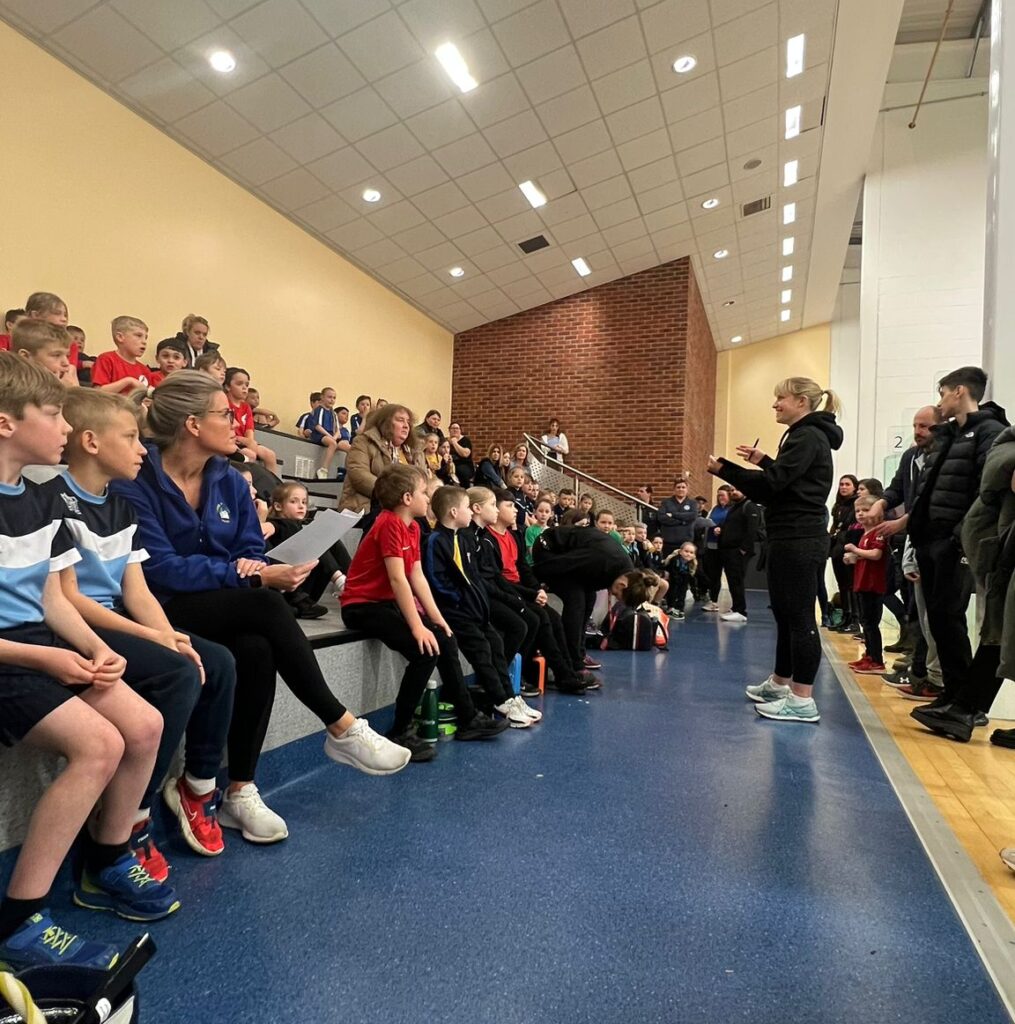
Many of Off The Wall’s current intake of 134 juniors joined the academy directly from its schools outreach programme, which it claims is the largest in the country.
This programme culminates this month when nearly 200 of the best Year 3 and 4 players in Colchester compete for The Roman Cup (pictured above).
Going into schools is “scary” for coaches, but is the best way to repopulate squash clubs across the country post Covid, Selby told Squash IQ as we sat in on one of Off The Wall’s regular Tuesday evening sessions for juniors.
“If we can do this here, others can too,” Selby said.
“The clubs are in no fit state, and need more grass roots players to populate them so they can survive.
“So what are you going to do? It’s really hard to get an influx of adult players who have never played before. You could try to resurrect ones that haven’t played for a while…
“Or, you could do it a different way, which is what we’ve done for the last ten years, and do loads of primary school work to get kids interested in a sport they may never have heard of.”
Meet the team
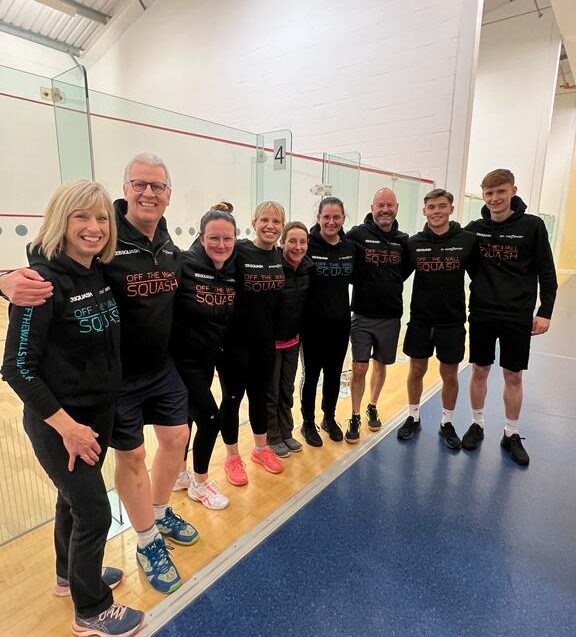
Off The Wall claims to have exposed around 3,000 junior school children to squash this year alone.
Its team, which includes Selby’s wife Karen Selby, daughter Lauren Selby (a former top 35 player) and daughter in-law Lucie Selby, go into schools to showcase squash over five weeks. The children are then brought to Colchester Garrison to experience playing squash on real courts.
Next, the schools are invited to submit teams of two girls and two boys to enter The Roman Cup, the Year 3 and 4 competitions for which take place this month (the Year 5 and 6 competitions will be held later this year).
“The schools generally put in more than one team,” Selby explained.
“We had 30 teams last week for Year 4, which was 120 kids, and then we’ll have 72 Year 3 kids this week.”
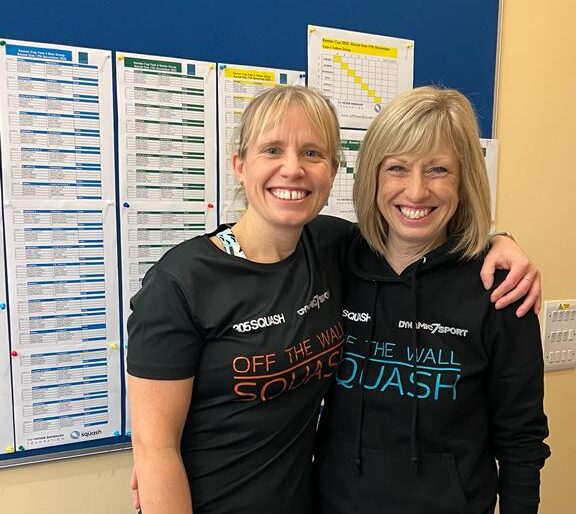
“Everyone gets a t-shirt, which is sponsored, and most kids who play get a letter allowing them to have one month’s free coaching,” Selby added.
“In the last few weeks, we’ve had another 25 kids who played the Roman Cup then come and try [at the Academy].”
Nationwide plans
After attempts to enlist England Squash’s help in rolling the model nationwide fell flat (“they have other priorities”, according to Selby), Off The Wall is “going to roll it out anyway”, Selby said.
“Lauren has written a primary schools workshop, which gives coaches the template of how to go into schools, how to get the financing arranged and how to structure the five weeks,” he said.
“It’s an idiot’s guide to how to do it, because it’s really hard going into primary schools. You have 34 kids who are six or seven years old and have never played before, which is quite scary. And that’s why a lot of coaches don’t do it.”
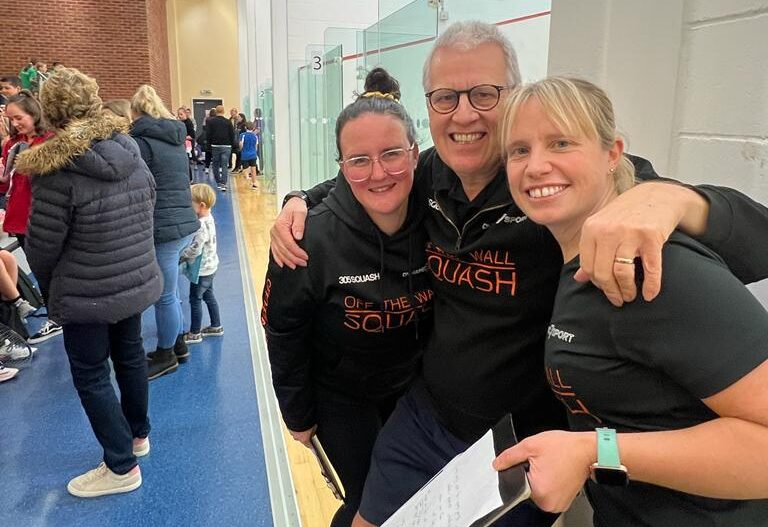
Selby namechecked the Nick Matthew Academy in Hallamshire as another academy successfully engaging in schools work, and called for more to follow suit.
“The academies need to grow,” he said.
“The counties are really weak at the moment for various reasons. Are counties the way forward? Possibly not.
“Are academies the way forward? I’m not saying they’re a panacea, but there are a few that are doing really well.
“Maybe that’s the way forward – we get more kids to play and then we try to feed them into the clubs. We’re not a club, so we ask the [older] kids to go to Lexden [in west Colchester] because they can get league squash and play in teams. I think we’re helping that club get going.”
A sport for life

While squash is thriving in the US and Egypt – particularly at a junior and elite level – coaches at the coalface in England like Selby are quick to acknowledge its decline among the general public over the last 20 years.
There are now just 15 teams who play in Essex leagues, down from 140 in 1999, Selby said, to illustrate the point.
“That’s terrible, so something is wrong,” he added.
Although he counts Daryl beating Nick Matthew in the 2011 British National Championship as among his proudest moments as a coach, Selby’s main aim is to get as many kids playing as possible, whatever level they may reach.
“This is where everyone gets it wrong,” he said of attempts to grow the game.
“[The aim is] to give people a sport for life. They can go to university, get a job etc, but this gives them something to keep fit and healthy for life.
“That’s more interesting to us than producing great players.”


